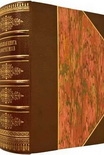Nature Noir, Jordan Smith [early reader chapter books .txt] 📗

- Author: Jordan Smith
Book online «Nature Noir, Jordan Smith [early reader chapter books .txt] 📗». Author Jordan Smith
With the flood-fighting crews fully deployed, Folsom Reservoir rising toward brimming over, and the water in some of the levees downstream a foot below their crests, there was nothing to do but prepare for the evacuation of large portions of Sacramento. Then, for no particular reason, the storm abated, Folsom's rise leveled off, and in a few hours the rivers began to subside. When it was all over, flood officials remembered for years afterward that the salvation of Sacramento had come not because of something they had done or the strength of protective measures—which were all but used up—but by the grace of God.
The storm of February 1986 deposited half of the American River drainage's average annual rainfall on the basin in eight days. In six days the inflow to Folsom Lake alone totaled over half an average year's runoff from the whole four-hundred-mile-long Central Valley and all of its rivers together—well over three times the reserve capacity the Bureau had been holding in Folsom when the storm began. In a white paper published by the Bureau three months later, the agency celebrated its handling of the crisis and, as a preemptive strike against critics, pooh-poohed the accuracy of weather forecasting as a basis for reservoir operations. But a study by the National Research Council was less congratulatory. On February 4, the study pointed out, the Bureau had been warned in a letter from the Army Corps of Engineers about the danger of encroaching on Folsom's reserve capacity, yet had failed to act. Further, the agency knew for several days before the cofferdam at Auburn failed that it was reaching capacity, yet it had not elected to drain enough water from Folsom to accommodate the cofferdam's 100,000 acre-feet of water.
Regardless of what the Bureau had done to worsen its danger, the storm of February 1986 changed the numbers on flood risk in Sacramento. Folsom Dam and the levees downstream were now given odds of one in sixty-three of failing to protect Sacramento in any given year. The new Federal Emergency Management Agency floodplain maps showed the line of a hundred-year flood reaching out to engulf places that had previously been considered safe. The Army Corps of Engineers announced gloomily that Sacramento was now the most poorly protected against flooding of all major American cities. By May 1986, automobile bumper stickers saying BUILD IT, DAM IT! were everywhere around Auburn, and by March 1987 Congressman Norm Shumway introduced the Auburn Dam Revival Act, federal legislation authorizing the resumption of construction at Auburn Dam. And it was under the shadow of a general certainty among local people that the dam would now be finished that I came to know the canyons it would flood, and the rangers who worked in them.
3 / Career Development
"HOAHH," BELL GRUNTED, ambling into our ranger station kitchen one morning in my first month on the American River.
"Hooahh," replied our lieutenant, MacGaff. He was putting on his uniform at a row of gym lockers along one wall.
"Wooahh," I greeted Bell, a little too eagerly perhaps. I was the youngest among them and the new guy.
Bell headed for his locker without further comment. He was tall, dark-haired, and deeply tanned, his inexpressive mouth almost hidden by a drooping desperado mustache—at this moment, anyway. The mustache was part of Bell's ongoing experimentation with facial hair. In the autumn, when he took a few weeks off to go salmon fishing and pheasant hunting, he'd grow a beard. He'd keep it through the winter, maybe until spring turkey hunting, and then shave it off in favor of the mustache again when the heat came. Later, when all his favorite baseball players had a goatee, he grew one. He was highly intelligent and a little shy, and did his best to hide both traits behind a kind of country-boy impassiveness. He played softball after work, had a deadly arm, and was mildly famous among the rangers for a foot chase in which he had thrown his baton—a policeman's club—at a fleeing suspect, landing it perfectly between the man's ankles, which stopped him in his tracks and broke his leg. Baton-throwing aside, Bell hated law enforcement. He was really too nice a guy for it, and empathized almost painfully with everyone he ever had to write up or arrest.
MacGaff was pinning his badge onto his uniform shirt. "Hey, Jordan, I still need a career development plan with personal performance standards from you." Turning to Bell, he added, "And that goes for you too, Doug." He pulled his aged gun belt from his locker and made it fast around his slender hips.
Outside, there was the sound of a compact pickup whining into the graveled yard. A few moments later, Finch came through the door and crossed the worn brown linoleum tile with his peculiar fast shuffle, not lifting his feet. He opened his locker, next to MacGaff's, and began to don his uniform.
Another pickup rattled into the yard. Ron O'Leary appeared, carrying his briefcase. He was in his early forties, but his roundish face and intelligent eyes were set between a neatly combed





Comments (0)